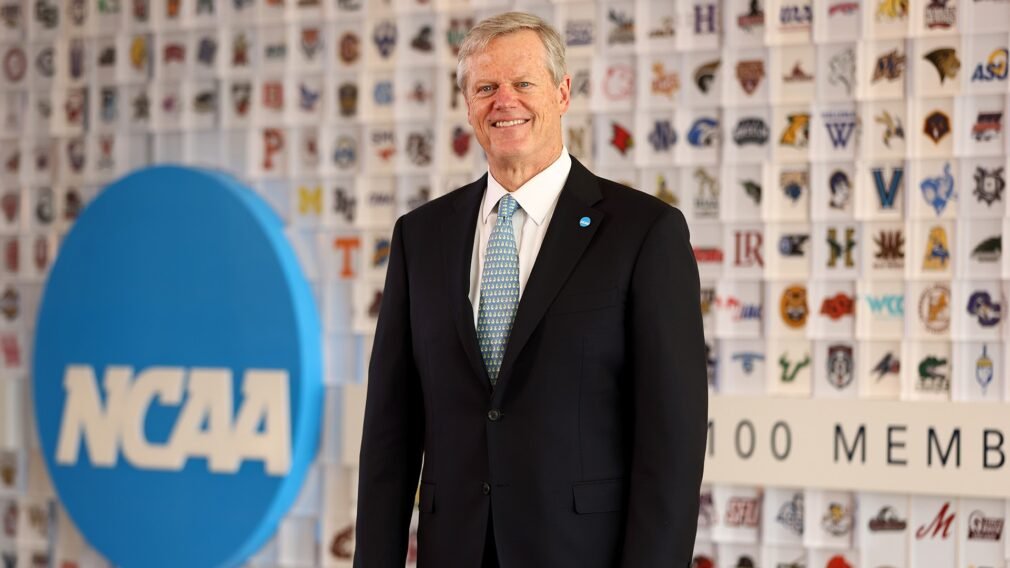NCAA President Charlie Baker Advocates for Curbs on College Sports Betting
NCAA President Charlie Baker has emerged as a leading voice in advocating for stringent measures on betting related to college sports. Speaking at the 2024 NACDA & Affiliates Convention in Las Vegas, Baker expressed his regret over the expansion of sports betting across the United States, noting, “I wish sports betting had just stayed in Las Vegas.”

Baker’s concerns are primarily focused on the impact of prop betting on college athletes. He emphasized the NCAA’s stance against player prop wagers, highlighting the challenges these bets pose for young athletes.
“It is far more challenging for young people to avoid it,” Baker said, as reported by Fox Sports writer Bryan Fischer. He also pointed out the potential for harassment that athletes might face from bettors, including pressure from friends and classmates.
Actions Taken by States
In March, Baker issued a statement urging all states with legalized sports betting to prohibit prop bets on college athletics events. His argument centers on the belief that these bets not only lead to the harassment of athletes but also threaten the integrity of collegiate sports competitions.
Several states have responded to Baker’s call. Louisiana will implement a ban on sportsbooks offering prop bets on college athletics starting August 1, joining Vermont, Ohio, and Maryland in this measure. These bans are seen as steps toward protecting college athletes from undue pressure and maintaining the integrity of sports competitions.
However, not all states have aligned with this approach. Montana, for example, has decided to continue allowing prop bets on college sports. Montana Lottery Director Bob Brown recently stated that the state would not follow the trend of banning these wagers, indicating a divergence in how states are handling the issue.
The Broader Impact and Future Considerations
Baker’s comments at the convention underscore the NCAA’s ongoing efforts to mitigate the negative impacts of sports betting on college athletes. His advocacy highlights a broader concern about the increasing normalization of sports betting and its potential repercussions on young athletes.
As more states consider legislation around sports betting, Baker’s stance could influence future policies. The actions of states like Louisiana, Vermont, Ohio, and Maryland reflect a growing recognition of the need to protect athletes, but the contrasting stance of states like Montana shows that a unified national approach remains elusive.
Recommended
